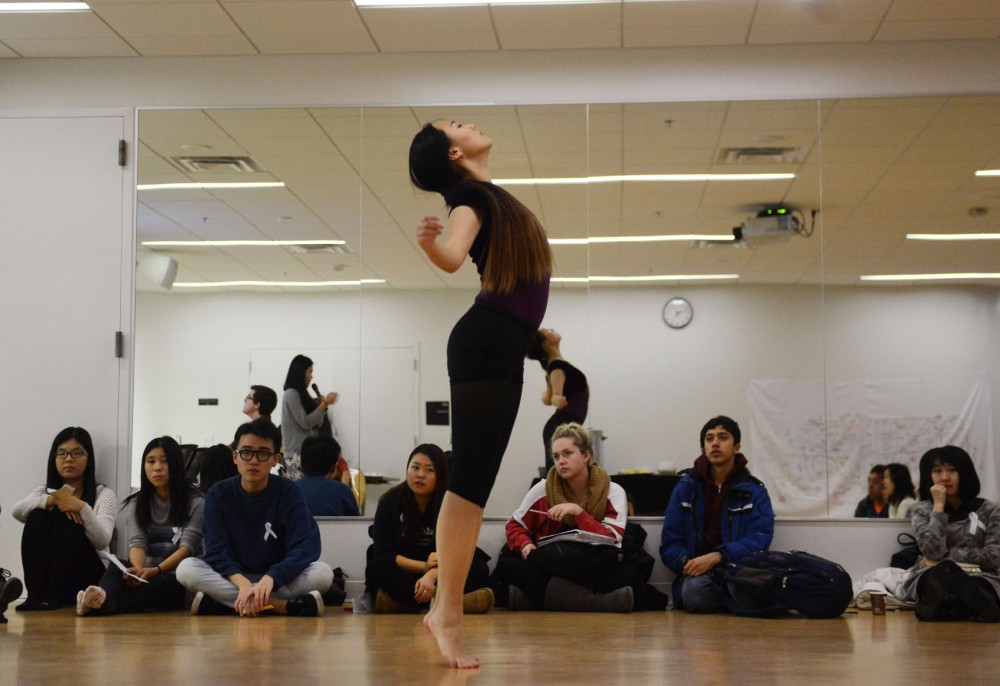A group of students stood at the front of a darkened room in the University of Minnesota’s recreation center on Friday, reading narratives from victims of relationship violence.
“I could have said no, but I didn’t,” the voices repeated at the end of each story.
The Women of Asia student group gathered with representatives from the University’s Aurora Center for Advocacy and Education, the University Police Department and the gender, women and sexuality studies department Friday afternoon to discuss the sometimes hushed problem of relationship violence in the University community.
Women of Asia President Alice Xie said many people don’t understand what’s considered relationship violence, and the event aimed to clearly identify that.
At the University, relationship violence is “causing physical harm or abuse, and threats of physical harm or abuse, arising out of a personal, intimate relationship,” according to the school’s sexual assault, stalking and relationship violence policy.
Xie said her group views relationship violence as a big problem within the University community, and one that is often overlooked.
“I personally have friends who have been through this problem, and the frequency that it’s happening is pretty astonishing,” she said.
Since 2009, there have been 32 reports of domestic assault within UMPD’s jurisdiction, said Coordinated Response Team Leader Sgt. Jim Nystrom.
He said the number of reported incidents is likely lower than the reality, though, because many go unreported.
Students in the audience Friday shared possible reasons that some assaults aren’t reported. They said some victims may feel embarrassed or may not want to betray their boyfriend or girlfriend.
Xie said her group aims to help Asian women and all University members become more educated and self-confident so they are comfortable in reporting relationship violence and sexual assault incidents.
“We hope not only to help people to get aware of this issue, to know that it happens and it happens a lot,” she said, “but to educate people and give people the tools to protect themselves as well.”
Though the event focused mostly on issues involving women in abusive relationships, Nystrom said it’s important to remember men and all students can be victims of relationship violence.
“It’s not just a female issue, not just an issue with heterosexual relationships. It’s all types of relationships,” he said.
Britt Heinz-Amborn, sexual assault counselor at the Aurora Center, said sexual violence is a large problem in the LGBTQ community.
More than one-third of gay and lesbian students and almost half of bisexual students said they’ve been a victim of domestic violence, according to a 2013 Boynton Health Service College Student Health Report.
Heinz-Amborn and Nystrom gave the event’s attendees resources to turn to if they or their friends experience sexual or relationship violence, adding that both the Aurora Center and UMPD help advocate for survivors of assault.
“Even just mentioning that the issue occurred is the first step,” Heinz-Amborn said, “and that’s the one that we have to support the most.”


